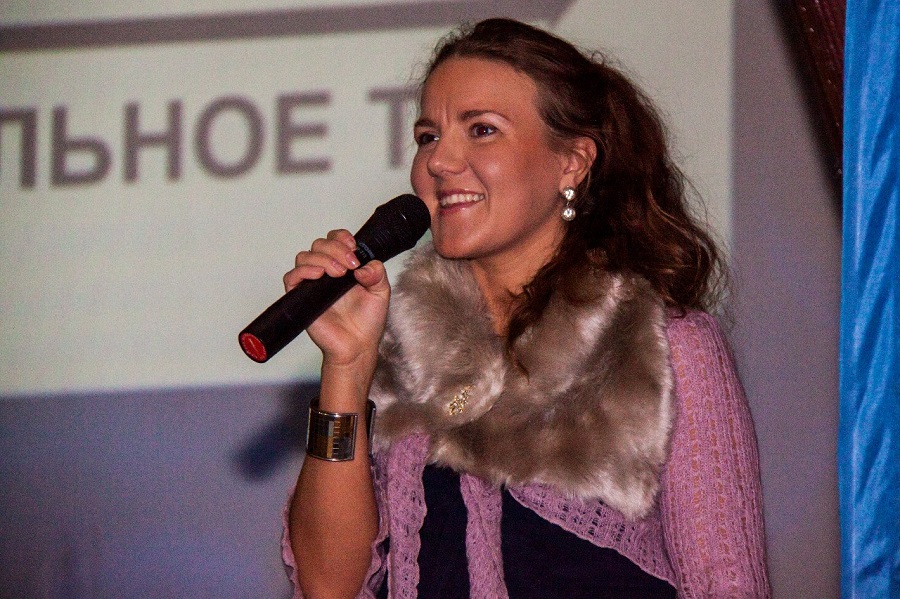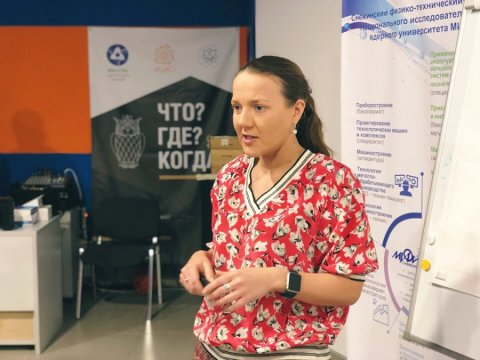Today, on October 23rd, Advertiser’s Day is celebrated in Russia. This is a holiday which unites specialists in the fields of advertising and PR. South Ural State University has educated 250 specialists, many of whom have created a successful career in their fields, including the fields of promotion and advertising. Alena Aksenovskikh, PR Director of Intersvyaz company and SUSU alumnus, speaks about studying at the university, her career path, and the prospects of development.
— Why did you choose to enrol at SUSU? What drew you to the field of advertising and PR?
— SUSU was my love at first sight. I remember when I saw that building for the first time (at that time, it didn’t have the spire yet), when I came there as an eighth-grade pupil with my work to the student scientific society. I immediately liked the atmosphere and people. I wanted to be part of this world – big, free, scientific. In the 11th grade, my mentors, friends, and I were able to win both in scientific contests and in the international creative and intellectual game Odyssey of the Mind. Based on these merits, we were offered special conditions for enrolment. It didn’t take me long to choose my field of study: art, communication, and modern technology, all converged in a field of study that was new at the time – Public Relations.

— What was the most interesting thing for you during your studies?
— Communication. Our field of study really brought together interesting people: students, teachers, and practitioners. I’m still in contact with many of them, including about work issues. I like that in this field, you always need to keep an eye on the trends. There were, of course, fields where you only had to learn the material to get a good grade, but it’s more interesting to create something. For example, I really liked to write term papers: choosing an unusual topic, collecting material, thinking up something new while writing the text.
Psychology and systems of communication is a multi-level and diverse topic, which is not only useful for anyone in their everyday life, but also in professional activities, where it can be scaled to an individual enterprise, a region, or to the geopolitical level. We are all part of these processes, so understanding them and managing them is a kind of art!
— Today you are the PR Director at Intersvyaz company. How did your career begin?
— My first job was within my field – I worked on the promotion of Sunny Valley ski resort (Miass). I created and thought up a lot, worked 6-7 days a week – I really liked it. By the way, since then the mountains have become an important part of my life, and I maintained friendships with many journalists from that period. I gained a huge amount of experience. Then the time came to return to Chelyabinsk, and I understood that among all the companies that were hiring, I wanted to work at Intersvyaz in particular. At that time, it was already clear that they were the leader in the telecommunications market of the Chelyabinsk Region and the future belonged to them. The technologies and projects being fulfilled by the team of Intersvyaz and its leaders are opening new possibilities and serve as an example even on the international level. I had to dive into a completely new topic, learn a lot of terms, and navigate within a complex hierarchy (the company has around 1,700 employees in 16 cities) and within the specifics of this work. In a well-coordinated team of professionals and competent managers, this turned out to be quite feasible. And for the past nine years, my colleagues and I have been promoting innovations to the public in all ways possible. This work is interesting, difficult, and enjoyable.
— Based on your experience in PR, please tell us how advertising supports promotion?
— PR people and advertisers always move in tandem. We regularly synchronise our efforts and use each other’s resources and tools to accomplish a common goal. A good public relations specialist needs to know the laws of advertising, marketing, and possess all of the related journalistic skills, because they are in a field which combines them all. In addition, when implementing PR strategies, we communicate a lot with the advertising departments of various media institutions and companies.
— What advice can you give to students who want to work in promotion-related fields?
— The advice I would give to all students is to work on what they truly enjoy, where they find it interesting to develop and develop the field itself – then they will be in-demand on the labor market. In terms of PR specifically, you need to love people, solve nonstandard tasks, and be able to quickly move from one form of work to another. As for the prospects, thanks to my work in the IT field I believe that the future belongs to those who can create and think. All of the more simple fields will be automated in one way or the other, and in solving simple algorithms machines will replace men. The question is ‘Who will control the machines?’ So don’t be scared to prove yourself, work on creativity and science!




